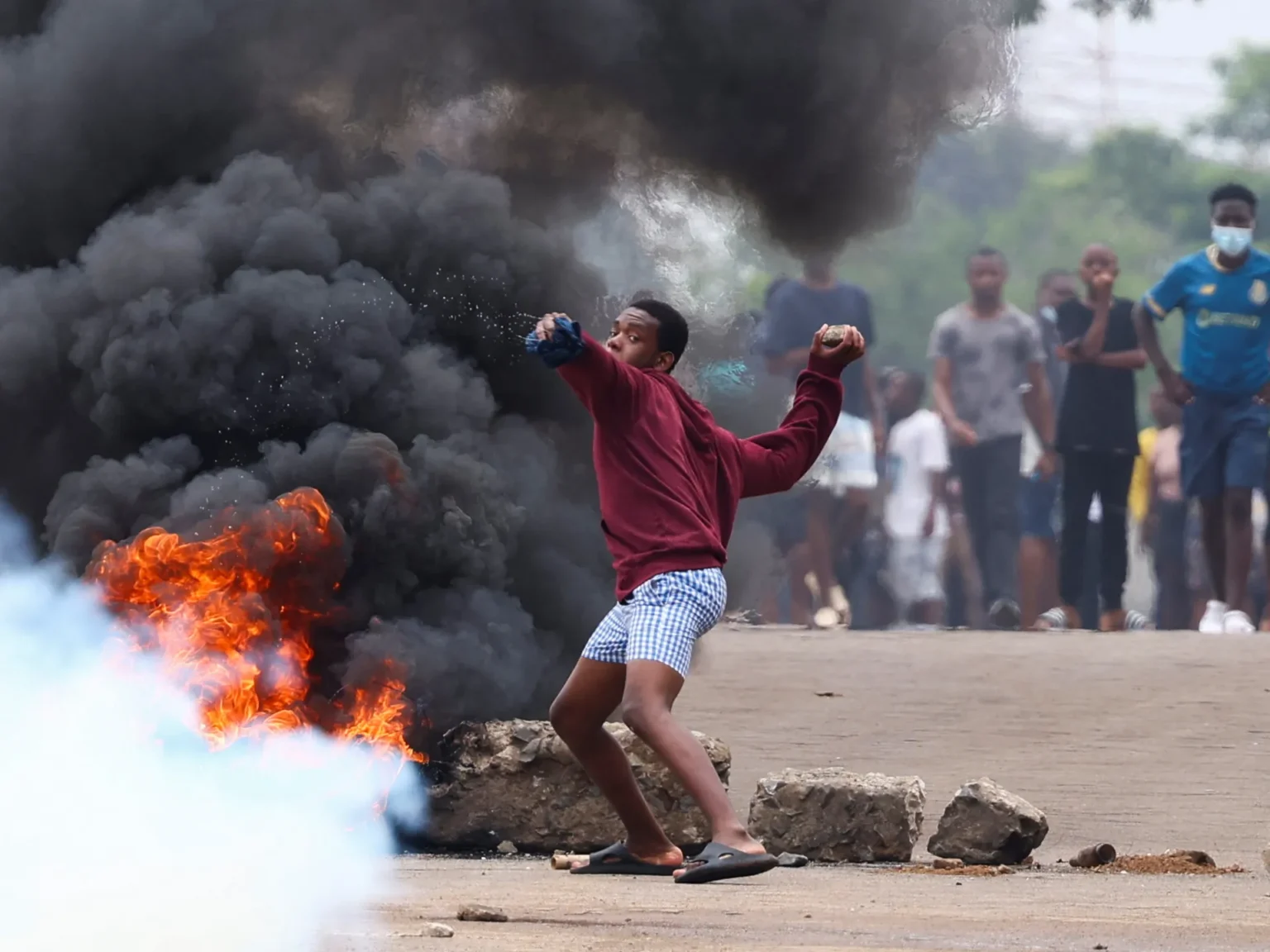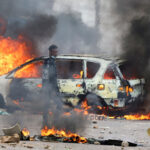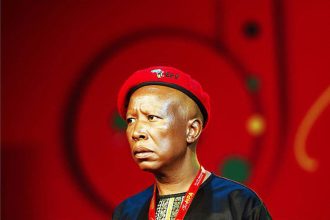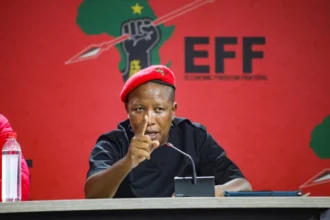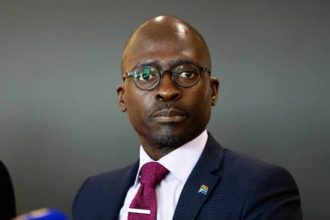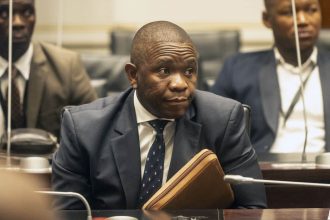The Economic Freedom Fighters (EFF), led by Julius Malema, have raised alarms about Mozambique’s escalating political and security crisis, warning of a potential civil war that could destabilise the region. The party has called on Pretoria to summon Mozambique’s High Commissioner over what it describes as the “violent suppression” of protests and dissent in the neighbouring country.
Turmoil Following Disputed Elections
The unrest stems from Mozambique’s contentious elections on October 9, where the ruling Frelimo party’s candidate, Daniel Chapo, was declared the winner. The country’s Constitutional Council later revised Chapo’s victory margin from 70% to 65%, transferring a portion of the votes to opposition leader Venâncio Mondlane, who gained a modest increase from 20% to 24%.
Despite this adjustment, opposition groups have accused Frelimo of electoral manipulation, sparking widespread protests. Clashes between demonstrators and security forces have resulted in dozens of deaths, including both civilians and police officers.
EFF Condemns Mozambican Government
EFF national spokesperson Leigh-Ann Mathys directly criticised the Frelimo-led administration, accusing it of clinging to power through corrupt practices and undermining democracy.
“This crisis is the result of a liberation movement now driven by self-serving individuals. The Mozambican government has failed its people by neglecting basic services like education, healthcare, and economic development,” said Mathys. She attributed the public outrage to these failures, which the state has responded to with excessive force.
The EFF urged the South African government to take stronger action beyond calling for calm and restraint.
Calls for Regional Intervention
The party has recommended that South Africa summon Mozambique’s High Commissioner to formally condemn the violence and repression. It also urged President Cyril Ramaphosa to collaborate with the Southern African Development Community (SADC) and the African Union (AU) to facilitate a sustainable resolution.
“Mozambique teeters on the edge of a civil war,” said Mathys, referencing the devastating conflict of the 1980s that cost thousands of lives, including President Samora Machel’s. “The repercussions of such a conflict would ripple across the region, threatening the stability of SADC and reversing decades of progress.”
Security Crisis Intensifies
Further exacerbating the situation, more than 1,500 prisoners escaped from a high-security prison in Maputo amid the chaos. The jailbreak has raised concerns about a potential surge in crime.
General Commander of Mozambique’s police, Bernardino Rafael, warned of an imminent crime wave in Maputo, saying, “We expect a dizzying increase in crime over the next 48 hours.” He added that the escapees, described as “specialists in all types of crimes,” could escalate robberies, assaults, car theft, kidnappings, and other violent acts.
While authorities have recaptured about 150 fugitives, the majority remain at large, intensifying fears of instability.
A Warning for the Region
The EFF issued a stark warning about the broader implications of Mozambique’s crisis, suggesting that former liberation movements in the region are losing popular support and resorting to oppressive measures to maintain power.
“There is a sweeping change in the SADC region politically. Former liberation movements are now collaborators or oppressors, refusing to accept their declining support. Their actions represent an alliance of regressive forces, detrimental to the future of the region,” Mathys stated.
As Mozambique’s political and security landscape deteriorates, regional players, including South Africa, face mounting pressure to intervene and prevent further escalation.

